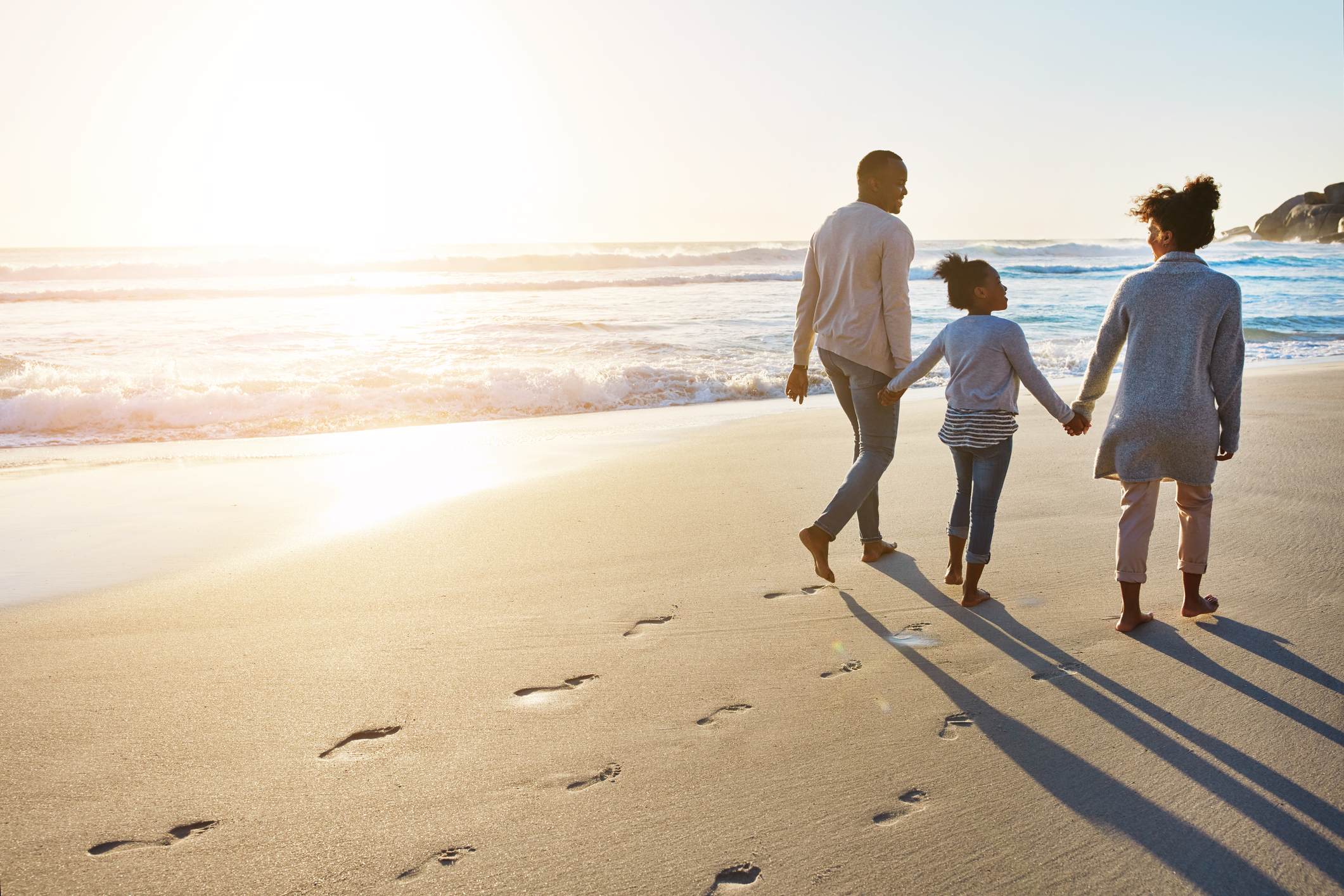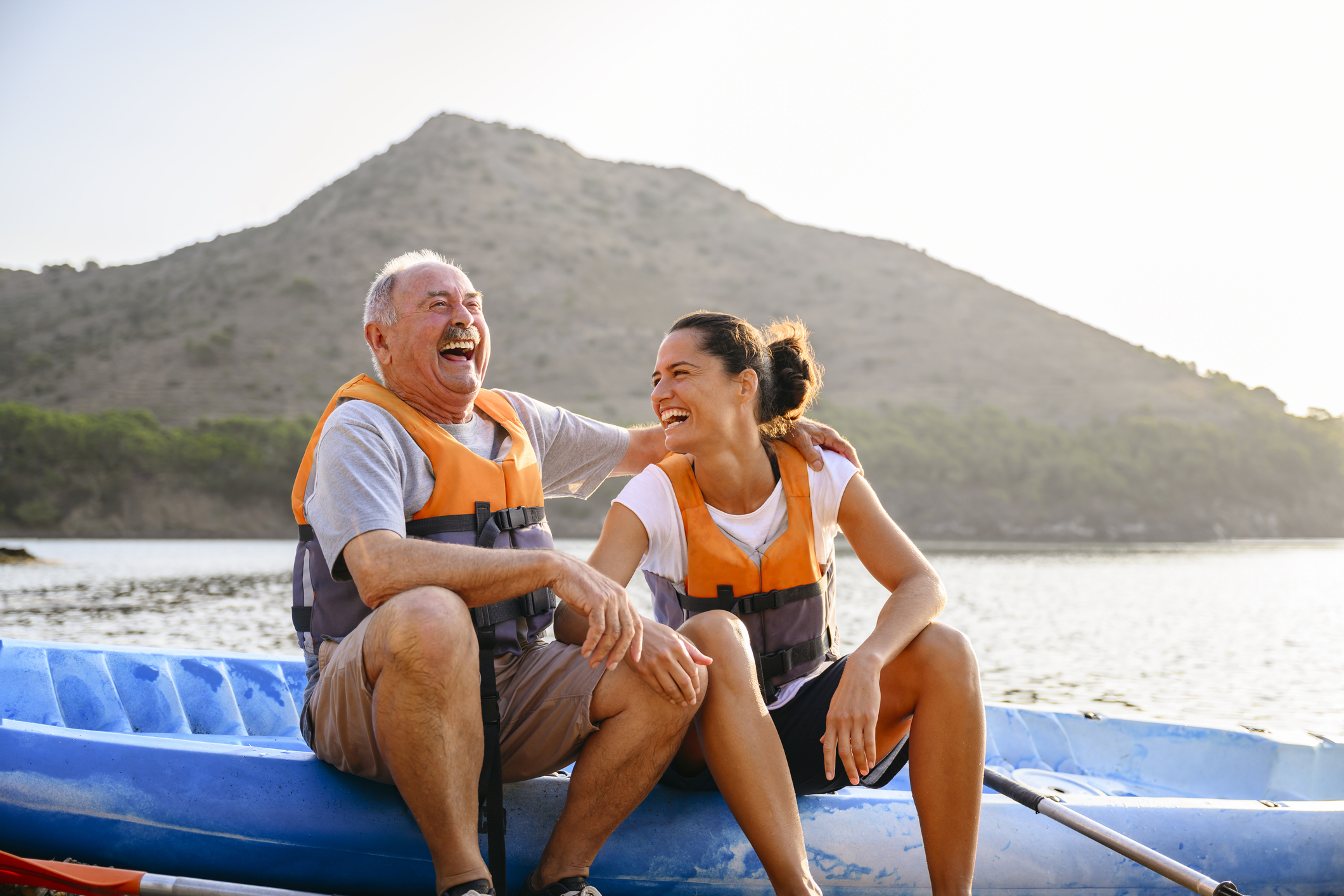
You're no doubt making plans for summer travel and getaways. But a spike in COVID-19 cases and news about the monkeypox virus could have you worrying about the risks of traveling domestically and/or abroad. Read on for advice from our health pros about how to safely drive, fly, and adventure to your destination of choice.
Flying
Now that mask mandates have ended on airlines and in airports, you may have concerns about how COVID-19 spreads on flights. But Monaa Zafar, MD, an internal medicine physician for Westmed Medical Group, a Summit Health company, says airplane filtration systems “keep the risk of in-flight transmission of COVID-19 low. That risk drops even lower when good ventilation is accompanied by precautions including masking."
She cautions that the risk of exposure is higher at airports, however, where the air systems are not as strong, and people are eating and drinking near their gates. “I would still recommend wearing a mask at the airport, and in airplanes for individuals at high risk or concerned about contracting a respiratory infection," she says.
You should also be proactive when traveling to protect your overall health in general, CityMD’s Chair of Urgent Care Medicine Katharine Miao, MD, says. “Stay well rested and drink water. While it may be tempting to have a glass or two of wine, water is the safer bet to arrive at your destination hydrated. Wash your hands regularly before eating or drinking and put on sunscreen before you step outside."
If your flight is longer than two to three hours, reduce the risk of blood clots by circulating the blood in your legs. Every hour stand up and walk down the aisle or pump your calves by moving feet up and down at the ankles.
Traveling Abroad 
As we see COVID-19 numbers climb again, check the requirements for entry before you visit an international destination, explains Redentor Mendiola, MD, a Summit Health infectious disease specialist. “Most people book two months out, and things could change in two months. Other countries will have their own policies," he adds. Dr. Mendiola also recommends getting the COVID-19 booster shot if you're eligible.
As far as catching COVID-19 abroad, Harold Sirota, DO, a Summit Health primary care physician, says, “if you are up to date on your vaccinations and use masks in crowded spaces, and wash or sanitize your hands regularly, then the risks of contracting illness of any kind is greatly diminished when you travel domestically or internationally."
Whether in the air or at the destination, Dr. Sirota says, “it’s all about minimizing risk. You, as the traveler, can only control what you do." He advises utilizing masks and shields, social distancing wherever possible, and bringing along wipes and sanitizer.
Large Gatherings
As the pandemic canceled or stalled weddings, reunions, and other large gatherings, there are more celebrations than ever happening this summer. But is it safe to travel and attend?
The answer varies, according to Dr. Zafar. “This depends on infection rates in the area where the gathering is taking place, and vaccination rates in the area as well," she says. “Asking guests to test prior to the event is reasonable. Ensuring one is fully vaccinated and boosted is the best precaution one can take."
She also advises that hosts ensure adequate ventilation at the venue, and guests use social distancing and wear masks if high risk.
What to Wear and Pack
Even if you're traveling by car, which Dr. Mendiola describes as a more “controlled environment," it’s critical to still take precautions. “Keep track of the incidence of cases where you're going, and mask up before you go. You may want to isolate prior to traveling," he says, to avoid becoming infected before you leave.
In addition, “hygiene while traveling is always a concern, whether driving or flying. Make sure you wear comfortable clothing that breathes and consider adding extra layers," Dr. Mendiola recommends. “Plan ahead and bring extra sanitary products with you for the road, too."
Finally, all the physicians recommend packing a health kit. This can include extra COVID-19 tests, acetaminophen, or other pain/fever reducers, KN95 or N95 masks, disinfectant wipes, hand sanitizer, a thermometer, antihistamines, and antidiarrheal medication.
